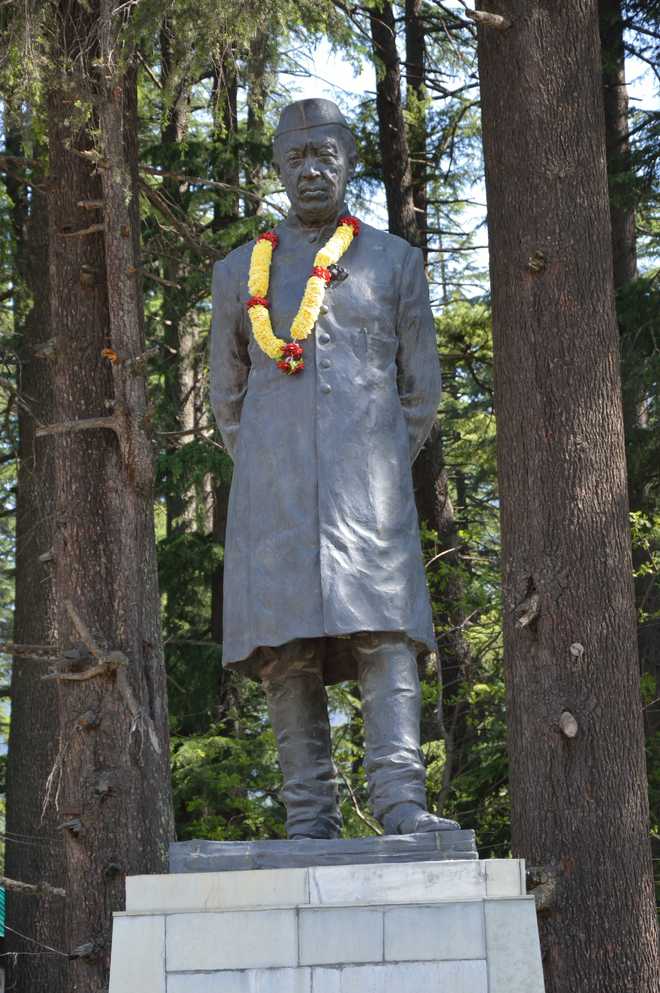Dr Satish K Kapoor
There appears to be a striking ambivalence with regard to Nehru’s approach to the mysterious. He wanted to be ‘in tune with it’, ‘to experience it in its fullness’ and to delve into its ‘unknown depths’. But he preferred ‘the way of science, the way of subjective approach’ to understand it, even while recognising that there could be no such thing as ‘true objectiveness.’
Nehru was inclined towards religious values than towards established religions, towards the here than the hereafter, towards an action-packed life than the life of a monk. Although his urge to experience life through action ‘nearly stopped him from probing into such religious matters as the nature of the soul, life after death, and metempsychosis’, he admitted that he was ‘favourably disposed towards these assumptions’ because of the environment in which he grew. He admitted to have been attracted by the philosophy of Advaita Vedanta, even though he never claimed to understand it fully.
Nehru’s acceptance of an immaterial substance or entity, distinct from the body, and its incarnation in the world of cause and effect, as per the laws of karma, was due to his initiation into Theosophy during the formative years of his life in India, and his study of the Indian thought, as interpreted by Swami Vivekananda and Sri Aurobindo.
Spiritualism, ‘with its séances, and its so-called manifestations of spirits’ appeared to Nehru as ‘a rather absurd and impertinent way of investigating psychic phenomena.’ Magic might have some use in primitive societies. But when science has advanced so much, the use of talismans, tarot packs, rosaries, mediums, black boxes or exorcist rituals looks absurd. He rejected the ‘supposed supernatural communion’ achieved by mystics through cataleptic fits, which they described as divine ecstasy. But he believed in intuition, the ability to grasp truth directly without any conscious or preliminary logical reasoning.
Nehru’s God, like that of Saint Thomas Aquinas, was not a person but a Supreme Principle, not an intelligent being, but Intelligence itself. He believed with Plato that anthropomorphic imagery debased gods to the human level, and led to obscurantism. While Voltaire held that even if god did not exist it would be necessary to invent him, Nehru opined that even if he existed it might be desirable ‘not to look upon him or to rely upon him’ because ‘too much dependence on supernatural factors’ might shake man’s faith in himself and blunt his creative ability.
Nehru did not favour a religious approach to life because it was rooted in prejudices and superstitions. Yet, he recognised the need for some faith as ‘the demon in us, some vital force, urges us on, and we tread that path from generation to generation.’
To Nehru religion was a matter of the evolution of consciousness of an individual. He was opposed to organised religions as they bred hatred and violence in the name of God, opposed change and helped reactionary forces. Such was the level of his disenchantment that he wanted to replace the word ‘religion’ with such expressions as theology, philosophy, morals, ethics, spirituality, metaphysics, ceremonial, and the like.
By ethics, Nehru meant the moral qualities of conduct, not the commandments of some religion. There was no place for renunciation, penance or asceticism neither in his ethics, nor for any prescribed duty. He recognised only such virtues as truthfulness, justice, wisdom, non-violence, humility and love. The nobility of means, as advocated by Mahatma Gandhi appealed to him. But he argued that right means were often ‘beyond the capacity of infirm and selfish human nature.’ He disapproved of Mahatma’s religious and sentimental approach to political issues and was sometime irked by his fasts and penances.
Nehru’s religion aimed at the ascent of man in all the departments of human activity. It was not a religion tracing its descent from some divine revelation, drawing sustenance from the Ipse dixit of some prophet, or wallowing in the quagmire of formalism. It did not create the fear of damnation nor give any hope of salvation. It was a religion, which sought to reconcile reason with intuition, and mysticism with science.
(Dr Satish K Kapoor, former Principal Lyallpur Khalsa College, and former Registrar, DAV University, is a noted author, historian and spiritualist based in Jalandhar)
Unlock Exclusive Insights with The Tribune Premium
Take your experience further with Premium access.
Thought-provoking Opinions, Expert Analysis, In-depth Insights and other Member Only Benefits
Already a Member? Sign In Now










